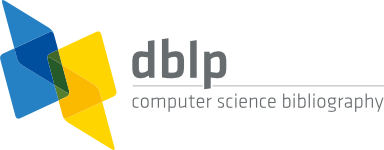SPECIAL ISSUES
The Progress of Hybrid Neural Networks for Image Processing Applications
2023.04.19
The modern world has tremendous growth in science and technology that showed a significant
impact in almost all other fields. It established the most robust platform for developing various sectors
from agriculture to space research. Image processing is one of the techniques that provide multiple
benefits. Normally, humans and animals use their eyes to see the object and identify them using their
brains. But replicating the same in the computer or the digital machine is not easy. Conventional
technology allows us to capture the image and store the data digitally. Processing and analysing the
image involves multistep with effective learning programs.
The hybrid neural network combines two or more neural networks, which overcomes the individual drawback
and provides more accurate results. Integrating artificial and spiking neural networks helps achieve a
tremendous breakthrough in artificial intelligence. Artificial neural networks imitate the human brain's
functionality, which are connected with neurons of multiple layers. Each neuron stores a huge amount of
data, and the neurons are interconnected using the relationship between the data. The hybrid neural
network has a powerful computational capacity that invokes various algorithms, self-learning ability,
enhanced decision-making system. These capabilities help analyse the complex data, extract features and
insight from the data, and provide an effective conclusion with the strongest reasonable value. The image
processing involves various steps that include image enhancement, segmentation, feature extraction, feature
identification etc. The hybrid neural network uses separate algorithms and provides the output in each
step. The output from the previous step is given as input to the next step to enhance the feature output.
Such image processing techniques provide various benefits to the medical sector, such as analysing the
MRI scans X Rays, predicting the abnormalities in brain functionality, and identifying the brain tumours.
It is also used to identify Alzheimer's disease earlier, thereby diagnosing and providing treatment.
Most of the novels and stories are written manually by the authors; digitising it is a difficult task
and increasing the number of books increases the time. Implementing Handwritten analysing using hybrid
neural network-based image processing simplifies this task and saves time and cost. Image and video
processing techniques help to implement smart cities. Images and videos captured from the CCTV cameras
are used as a source hybrid neural network to identify physical threats, attacks, dangerous situations,
and accidents happening at unusual timing, and automatically send the notification to nearby hospitals
and police stations and connect the emergency team for support. In manufacturing industries, it helps to
identify fake, damaged products to improve their quality, and an automatic face detection system helps
improve security.
With the deployment of hybrid neural networks, great advances in image processing techniques have been
accomplished, according to this article. This promotes creative thinking and authentic research to improve
image processing techniques for upcoming years.
 SUBJECT COVERAGE
SUBJECT COVERAGE
Related Topics:
- 1. Advanced methods and strategies for optimized Nanofluid model with great stability.
- 2. Nanofluid-based enhanced lubrication system in automobiles.
- 3. Innovative Methods of Temperature optimization using a nanofluid-based Combined Heat and Power system.
- 4. Automated identification and tracking of electric towers for airborne power line maintenance,
- 5. Recent advancements and projected trends in UAV communications for 5G and beyond.
- 6. Risk associated with the Deep learning based video recognition system for security enhancement at banking sectors.
- 7. Recent Advancement of Hybrid neural network in hand written recognition model.
- 8. Identification of Brain Tumor and Alzheimer disease using Hybrid neural network.
- 9. Identification of Threat and dangerous situation detection techniques for smart cities using hybrid neural networks.
- 10. Hybrid neural network based UAV for Natural resource identification
- 11. Applications of Hybrid neural network based image processing in Space research
- 12. Image processing Techniques for the Detection of fake products and damage identification
 SUBMISSION GUIDELINE
SUBMISSION GUIDELINE
Papers must be submitted to the Manuscript Link service - https://www.manuscriptlink.com/journals/jips.
It is important that authors should select "JIPS Survey / Special Issue" and " The Progress of Hybrid
Neural Networks for Image Processing Applications" when they reach the "Basic Information" step in the
submission process. Before submitting papers, you need to read the JIPS submission guideline.
 Notification of APC
Notification of APC
US $890 or KRW 940,000
- Additional Fee: KRW 100,000 (US$100) per page (within 4 pages)
- Remark: The size must be within 11 pages including a photo and a profile (refer to the sample paper format).
 GUEST EDITORS
GUEST EDITORS
Dr. Yaser Daanial Khan
Professor, HEC Approved Supervisor,
School of Systems and Technology,
Department of Computer Science,
University of Management and Technology, Lahore, Pakistan
Scopus: https://www.scopus.com/authid/detail.uri?authorId=54959684900
Google Scholar: https://scholar.google.com.pk/citations?view_op=list_works&hl=en&hl=en&user=iCNqsH0AAAAJ&sortby=pubdate
Co-Guest Editor Details:
Dr. Hao Lin
Center for Informational Biology,
University of Electronic Science and Technology of China.
Email: hlin@uestc.edu.cn
Google Scholar: https://scholar.google.com/citations?user=XTYodIgAAAAJ&hl=zh-CN
ORCID: https://orcid.org/0000-0001-6265-2862
Dr. Dhanapal Durai Dominic
Department of Computer and Information Science
University of Technology
Tronoh, Perak, Malaysia Dept. of Computer and Information Science, University of Technology Petronas, Tronoh, Perak.
E-Mail: dhanapal_d@utp.edu.my, pdddominic@yahoo.com
Scopus: https://www.scopus.com/authid/detail.uri?authorId=43361069300
ORCID: https://orcid.org/0000-0002-2496-1311
 Important Dates
Important Dates
- - Submission Deadline: 30th July, 2023 -> 26th August, 2023
- - Authors Notification: 30th September, 2023
- - Revised Version Submission: 20th October, 2023
- - Final Decision Notification: 20th December, 2023









